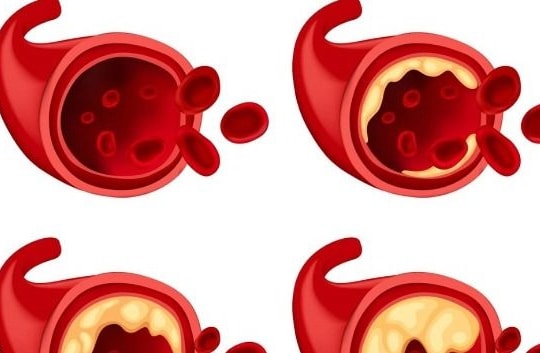Smoking is very harmful to the heart.
(Baonghean) -Smoking is very harmful to the lungs, causing lung cancer and chronic lung diseases.
However, the harmful effects of tobacco can be much greater, affecting the cardiovascular system and is one of the strongest risk factors for coronary artery disease, high blood pressure, diabetes, peripheral vascular disease... These diseases interact with each other, causing a vicious cycle that makes the condition worse.
 |
| Illustration photo. |
Studies have also shown that: Smoking accelerates the process of atherosclerosis, thereby causing heart disease, stroke, and peripheral artery disease. Smoking causes atherosclerosis through many mechanisms. First, it increases the concentration of carbon monoxide (a substance that damages the integrity of the vascular lumen, creating conditions for rapid formation of atherosclerotic plaque).
Smoking reduces HDL-cholesterol (a beneficial cholesterol) and increases LDL-cholesterol (harmful substance) and triglycerides (blood fat) causing increased atherosclerosis.
In addition, smoking also increases the ability of blood to clot easily forming blood clots on the basis of atherosclerotic plaque causing myocardial infarction or stroke. Smoking also causes damage to the endothelial cell layer (the layer of cells lining the blood vessel wall), losing its smoothness and elasticity, making it easy for atherosclerotic plaque to form under the endothelium.
When smoking, it immediately increases the concentration of catecholamines in the blood (this is an endocrine substance that stimulates the body's sympathetic nervous system) and carbon monoxide in the blood. These stimulants can trigger chest pain or aggravate other heart conditions. Increased nicotine levels in the blood also cause vasoconstriction, increase blood pressure, increase heart rate, making the heart work harder or can also cause heart rhythm disturbances.
Studies also show that: The level of impact on the cardiovascular system also increases with the level of smoking, that is, the more and longer you smoke, the higher the risk. Quitting smoking significantly reduces the risk of cardiovascular disease compared to those who continue to smoke. In particular, this risk is reduced to only 1.3 (who have quit) compared to 2.0 times in heavy smokers who do not quit.
In addition, quitting smoking in people who have never had symptoms of cardiovascular disease will reduce the risk of cardiovascular disease in the future very clearly. Especially in patients who have had cardiovascular disease, quitting smoking is an issue that needs to be especially emphasized and very determined. Quitting smoking reduces the risk of disease recurrence or worsening. Even in people who have smoked for a long time (many decades), quitting smoking still has benefits in reducing the risk of cardiovascular disease.
Quitting smoking has even been shown to significantly reduce the risk of heart disease in the first few days. According to the 1990 US Health Benefits of Quitting Smoking Report, quitting smoking reduces the risk of heart disease by half in the first year and after 10 years the risk is almost the same as that of a person who has never smoked, which is beneficial for both men and women.
Thanh Son
(Synthetic)
| RELATED NEWS |
|---|

.jpg)





